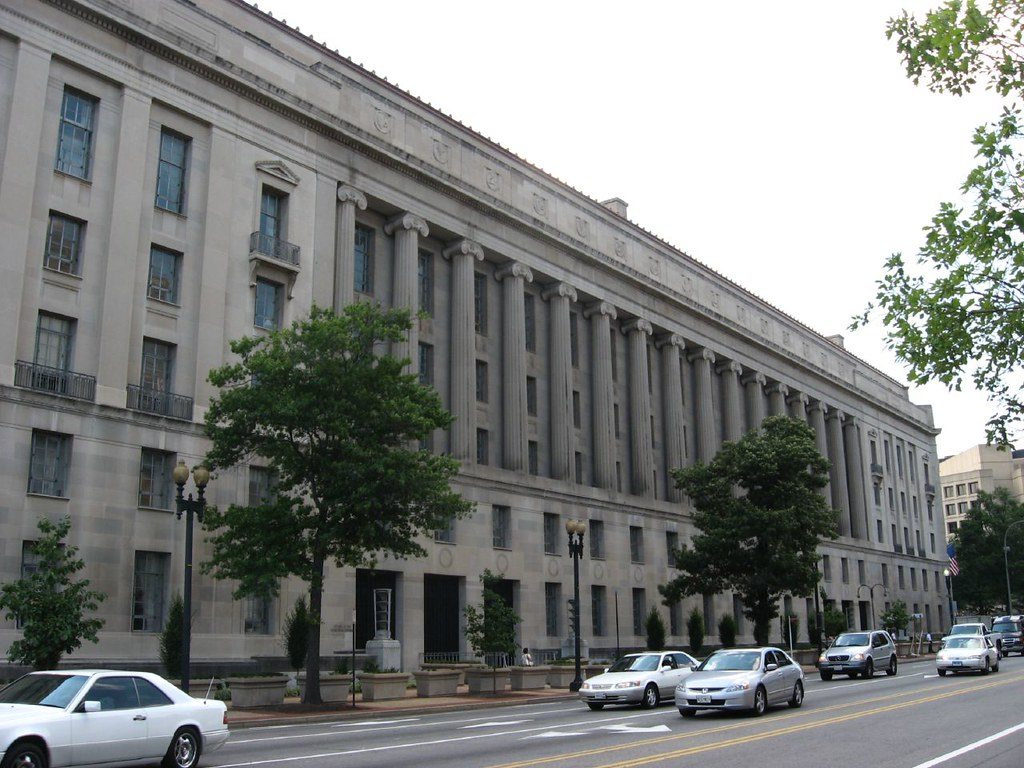A Very Special Counsel

Published by The Lawfare Institute
in Cooperation With

You get a special counsel, and you get a special counsel, and you get a special counsel. EVERYBODY GETS A SPECIAL COUNSEL!
It seems everyone gets the special counsel treatment these days. After nearly 20 years in which special counsel appointments were few and far between, Delaware U.S. Attorney David Weiss’s elevation to special counsel marks the fifth special counsel appointment in the past six years: Robert Mueller’s Russia investigation; John Durham’s investigation into that investigation; Jack Smith’s investigation into President Trump’s retention of classified documents and alleged efforts to subvert the 2020 election; Robert Hur’s investigation into President Biden’s retention of classified documents; and now Weiss’s sprawling investigation into Hunter Biden.
Weiss’s appointment surprised many. The Justice Department and Weiss have repeatedly assured the public and Congress that Weiss—a Trump appointee—has been investigating the younger Biden with significant independence from the Biden administration. But despite their efforts, recent criticisms from Trump, congressional members, testimony from Internal Revenue Service case agents turned whistleblowers, and the collapse of a plea agreement all likely played a role in Weiss requesting—and the attorney general granting—special counsel status.
Will special counsel status make a difference? Notably, it does confer additional powers and protections—such as the ability to bring cases in jurisdictions outside of Delaware.
But is it necessary? Indeed, are all of these appointments necessary? What problem does a special counsel appointment attempt to solve? And more important, does it actually solve it?
As discussed below, the problem is the conflict of interest that can arise when presidents or those close to them are alleged to have engaged in misconduct and the Justice Department is called upon to investigate. Yet despite the importance of solving this problem, the government’s efforts have fallen short.
The Problem of Presidential Misconduct
A potential conflict of interest arises when the Justice Department is called upon to investigate the president or close associates. To put it simply, how can one credibly and independently investigate one’s own boss?
It’s a familiar problem with familiar solutions. For example, companies generally do not have their legal departments investigate allegations raised against their CEO. Rather, they often hire an independent law firm or create a special board committee of independent directors who hire their own counsel to investigate.
But for the Justice Department, this problem is compounded within the federal government because—unlike a CEO—the executive holds exclusive constitutional authority to enforce the nation’s laws. And although the Justice Department employs thousands of career prosecutors who dutifully perform their jobs across administrations of both parties, the department’s investigation of its boss will almost always fuel suspicion in the eyes of the opposing political party, given polarization in American society.
Swings and Misses
So what is an analogous structure to an independent board committee? The government has taken several stabs at creating one—but has yet to craft a solution that our fractured political system accepts.
After Watergate, Congress passed the independent counsel statute, which sought to guarantee investigative independence from the executive branch by involving a three-judge panel and imposing procedural protections. But the lengthy and costly Iran-contra and Whitewater investigations created a rare bipartisan agreement that, well, no one really liked the office of the independent counsel anymore. And so the statute lapsed in 1999.
The Justice Department stepped into that void by promulgating regulations delineating the appointment, removal, and powers of special counsels—though the department notably conceded there is “no perfect solution” to the problem. Taking a look at recent special counsel appointments shows why that is so—and why certain structural challenges have resulted in appointments that have failed to convince large swaths of the populace that they are actually independent, credible, and apolitical.
An Unavoidable Fact: The Special Counsel Must Answer to the Attorney General
One such structural issue is constitutional. Because the Constitution vests the executive with the responsibility for enforcing the law—and because this power is conferred through the president to the attorney general—a special counsel still reports to the attorney general and by extension the president. And since Congress has not passed legislation akin to the independent counsel statute to involve another branch of government, the department’s regulations continue to maintain this structure.
It is true that the regulations counterbalance this constitutional reality with procedures that aim to provide independence. For example, Section 600.7 of the Code of Federal Regulations explicitly states that the “Special Counsel shall not be subject to the day-to-day supervision of any official of the Department.” But the very next sentence clarifies that “the Attorney General may request that the Special Counsel provide an explanation for any investigative or prosecutorial step, and may after review conclude that the action is so inappropriate or unwarranted under established Departmental practices that it should not be pursued.” However, this too has a check, as the attorney general must “give great weight to the views of the Special Counsel” and must notify Congress if the attorney general determines a course of action should not be pursued. The attorney general must also notify Congress upon appointing or removing a special counsel, and upon conclusion of the special counsel’s investigation. So there is a nod toward congressional oversight—ostensibly so that the legislative branch can check the executive.
Despite these checks and balances, the special counsel still reports to the attorney general. Republicans in particular have seized on this reality to question special counsels’ purported independence. President Trump’s lawyer John Lauro is not wrong when he continually observes that Special Counsel Smith still reports to Attorney General Merrick Garland and is, therefore, inescapably within the control of the Biden administration.
This is also true of Weiss. Despite Republicans’ repeated calls for a special counsel appointment, apparently they are still not satisfied, implying that somehow Weiss—a Trump appointee, remember—has become too compromised by the Biden administration to be independent.
Not All Special Counsels Are External Appointees
Weiss’s “elevation” to special counsel status exposes another shortcoming as it departs from the department’s own regulations. Section 600.3 of the regulations states that the “Special Counsel shall be selected from outside the United States Government.” This makes sense: Appointing a prosecutor from outside the executive branch (in theory) ensures greater independence from that executive branch. But while Mueller, Smith, and Hur were external appointees, Durham and Weiss were not. Rather, they were initially assigned to investigate their matters as U.S. attorneys acting at the attorney general’s direction—and only later received special counsel status. This creates a complicated situation, as appointing U.S. attorneys to special counsel status to continue their ongoing investigation into sensitive matters in relation to the president or those close to him or her is not explicitly outlined in the special counsel regulations. Indeed, the letters appointing Durham and Weiss rely on a mishmash of statutory and regulatory authority—namely the attorney general’s general statutory authority to staff and run the Justice Department, plus a statement that Sections 600.4 onward of the special counsel regulations apply to their work. (In other words, simply don’t worry about Section 600.3’s requirement that the appointee be outside the government.) To borrow from George Orwell’s “Animal Farm,” perhaps all special counsels are special, but some special counsels are more special than others.
Practically speaking, this may not seem that important. The attorney general can assign tasks to U.S. attorneys. And Attorney General Garland elevated a U.S. attorney that the former administration had appointed—indicating some semblance of independence. Finally, anointing someone special counsel creates a political signal of independence. If President Biden or Attorney General Garland fire a special counsel, it may cause some members of Congress’s heads to explode—or, at the minimum, some outcry.
Still, it is curious to see the government branch charged with enforcing the laws picking and choosing which portions of its own regulations to follow—while also undercutting the check that Section 600.3’s external requirement provided.
Special Counsels Have Special Powers. Is That Always a Good Thing?
None of this is to say that special counsel appointments are meaningless. As noted, they may pursue charges in different jurisdictions; are less subject to supervision; and removal requires explanation. Most fundamentally, an appointment empowers an experienced prosecutor and a well-funded office to investigate an identified set of misconduct allegations.
But as said in “Spiderman,” with great power comes great responsibility. And one recent example reveals how the executive can potentially use special counsel “status” to investigate its own perceived enemies, such as the so-called deep state.
Consider Durham. While special counsels typically investigate allegations raised against the current or former president, presidential campaign, or president’s family, Durham investigated none of those things. Rather, in apparent response to President Trump’s and congressional Republicans’ claims that Special Counsel Mueller’s investigation into Trump’s campaign arose from a politically biased FBI, then-Attorney General William Barr “assigned” Durham to investigate the investigators—ostensibly to see whether the FBI had a sufficient factual predicate to open a “full” investigation. This despite the fact that determining whether department employees have violated internal policies falls squarely within the jurisdiction of the department’s inspector general, who was already investigating that very thing. (Incidentally, Barr’s predecessor, Attorney General Jeff Sessions, had declined to appoint a special counsel to examine the Russia investigation in part because the inspector general was already looking into it.)
This was not an investigation up the chain of authority—it was one down it. Not exactly the conflict scenario necessitating a special counsel. Nonetheless, Attorney General Barr later granted Durham special counsel status right before the 2020 election—but didn’t publicly disclose that fact until a letter to Congress after the election. Under Section 600.9(b) of the regulations, Barr had the authority to delay that notification.
That decision saddled the Biden administration with a problem. Either keep Durham on board, doing whatever he was doing even if they believed his appointment was baseless, or remove him and risk public outcry. In the end, President Biden and Attorney General Garland kept Durham and the result of four years of work and millions of dollars spent was two acquittals, one plea by a lower-level FBI employee who served no jail time, and a report that shed little new light on findings the inspector general had made years before.
Seek and Ye Shall Find
Many observers argue that Durham’s investigation was unnecessary, problematic, and ultimately a dud. I view it as a cautionary tale. The fact that it seemed to many a dud reveals another potential problem with the use of a special counsel: the inherent pressure to find something to justify all the time, money, and effort.
And it is that pressure that is the most potentially pernicious aspect of the current fixation on special counsels. As Justice Robert Jackson explained in 1940 when he was attorney general, an ambitious prosecutor who targets a person rather than investigates a specific crime can nearly always find something to charge that person with:
If the prosecutor is obliged to choose his cases, it follows that he can choose his defendants. Therein is the most dangerous power of the prosecutor: that he will pick people that he thinks he should get, rather than pick cases that need to be prosecuted. With the law books filled with a great assortment of crimes, a prosecutor stands a fair chance of finding at least a technical violation of some act on the part of almost anyone. In such a case, it is not a question of discovering the commission of a crime and then looking for the man who has committed it, it is a question of picking the man and then searching the law books, or putting investigators to work, to pin some offense on him. It is in this realm—in which the prosecutor picks some person whom he dislikes or desires to embarrass, or selects some group of unpopular persons and then looks for an offense, that the greatest danger of abuse of prosecuting power lies. It is here that law enforcement becomes personal, and the real crime becomes that of being unpopular with the predominant or governing group, being attached to the wrong political views, or being personally obnoxious to or in the way of the prosecutor himself.
Even if not abused, the inherent focus of a special counsel—and the powers bestowed upon it—makes it quite likely that something will be found.
Of course, there is also certainly the potential for the president to outright abuse special counsel appointments to further personal interests—or at least attempt to do so. For example, President Trump considered appointing Sidney Powell—one of the outside lawyers (and now co-defendant) supporting his efforts to overturn the results of the 2020 election—as a special counsel to investigate claims of election fraud despite the fact that his own Justice Department (and countless others) had already debunked election fraud claims. As the Jan. 6 select committee reports, the White House counsel’s office “vehemently opposed” that plan and it did not come to fruition. Had there been a more pliable White House counsel’s office or Justice Department front office, the result could have been quite different—with potentially dire consequences.
What’s Old Is New Again
The Justice Department has become too quick to rely on special counsels. Yet their appointments often don’t solve the problem they’re meant to fix. Moreover, they tend to give credence to, rather than take away from, the growing political narrative that the Justice Department—including the FBI—cannot be trusted to impartially enforce the law.
This moment is reflective of the hyper-politicized and increasingly personalized nature of the United States’ relationship with the government. And the special counsel solution may be inadvertently contributing to the problem rather than fixing it.
What the United States needs is a solution to rebuild trust. Somewhat paradoxically, perhaps the new answer to this question is actually an old one. Maybe the United States should focus its efforts on empowering the hard-working career employees of the Justice Department to do their jobs without fear of political interference—whether from their own politically appointed leadership or from congressional or other external forces.
As a defense attorney, I certainly recognize that prosecutors sometimes abuse their considerable power, but observers should also recall that the federal government has systems in place to check that power—such as internal departmental bodies such as the Office of the Inspector General and the Office of Professional Responsibility, independent grand juries, experienced judges, jury trials, and appropriate congressional oversight.
Might Americans begin to trust the systems the U.S. has had in place for years? Time will tell. But I wouldn’t be surprised to see the current trend continue and the next special counsel be appointed to investigate Jared Kushner’s $2 billion Saudi investment, to be followed by a special counsel to perhaps investigate why President Biden’s dogs keep biting people, and on and on.




